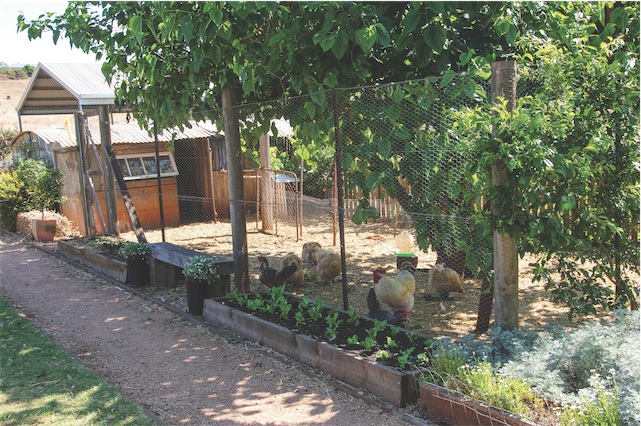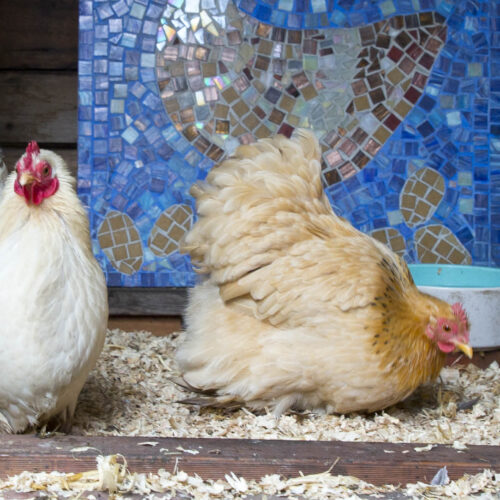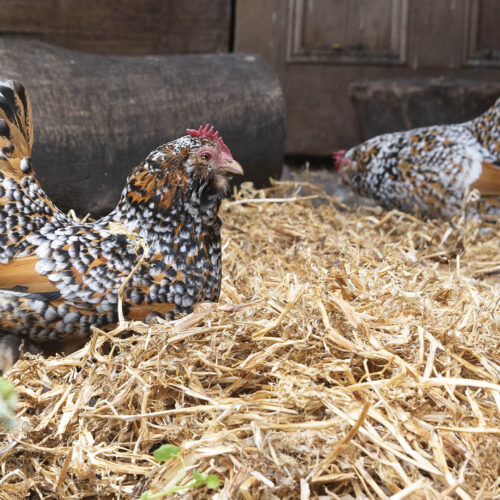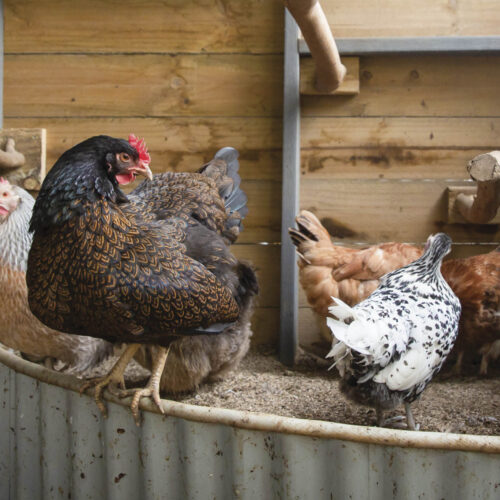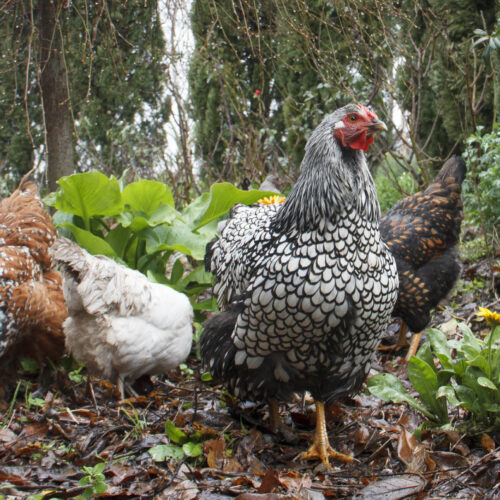Poultry planning
2013-11-26T01:44:15+11:00
Want to get the most out of your feathered friends? JUSTIN RUSSELL gives you tips for managing chooks in an organic backyard.
I can’t imagine having a garden without chooks. A backyard flock is indispensable to the way I manage my place, and my current gang of nine heritage breed chooks not only give me great joy but provide a range of services that save me time and money. Consider the benefits: chooks help keep insect pests and slugs under control. I’ve used them in a rotation system to prepare garden beds and clean up finished crops; occasionally my chickens are a source of sustainably raised meat; and there’s the most obvious benefit – chooks are the ultimate recyclers, turning food scraps into delicious organic eggs. But the other product – manure – is equally valuable and I’ve tried various techniques to maximise this resource.
Chook tractors
My very first vegetable garden was prepared by my very first flock of chooks. I built a mobile chook tractor to house half a dozen hybrid layers and allowed them to scratch up a patch up of kikuyu lawn in the bottom corner of my rented property. Concentrating chooks in one area works brilliantly in the initial phase of garden development. The birds pick and eat what they like in the lawn, then scratch up most of the grass runners, all while adding manure to the soil.
After a couple of weeks, the pen was moved to an adjacent patch of ground while the cleared bed had the soil turned, the final few grass runners pulled by hand, and a sprinkling of garden lime to correct the pH. After another couple of weeks, allowing the bed to settle, I planted. Some of the crops from that first garden still rank among the best I’ve ever grown. Basically, the weeding and manuring is done in situ.
The downside to chook tractors is that the concentrated effect of birds kept for too long on a single piece of ground is harmful to the soil and the birds. Factors such as pen size and stocking rates are vital considerations. Use your observation skills and common sense. If lawn mowing is the aim, move the chook tractor every day or two to fresh grass. If bed preparation or weed clearance is the aim, keep the tractor in place for a week or two then move it on.
Flexible fencing
Another management method, best suited to larger gardens or small holdings, uses a lockable house linked to temporary fencing, either basic galvanised wire supported by tomato stakes or electrified netting. The ‘night ark’ protects the flock from predators and provides a place for hens to lay, while the fences can be used to create ‘cells’ for the flock to work over. (See allsun.com.au/ Electranets.html for details of electric netting).
The advantage of ‘cell’ grazing is that the birds don’t need to be moved as often and the soil is managed in a gentler fashion. The birds also get to free range, clearing weeds and pest insects over a large area. You can buy poultry houses or construct a simple one yourself (if it has wheels, even better), but the main thing is to provide security, protection from weather and safe nesting.
Permanent housing
For me, the old-fashioned fixed chicken coop is working very nicely and will do for many backyard gardeners. I have a 3x3m henhouse made from recycled materials that contains roosting perches and laying boxes. Attached to this is a permanent run fenced with 2m-high heavy chicken netting. The base of the fence is lapped 1m outwards to prevent foxes from digging their way in.
The floor of both the house and run are dirt, and this is covered with a deep layer (approximately 20cm) of litter to absorb chook droppings. I use whatever litter is locally available such as straw, wood shavings or millet hay. With this system you can establish permanent shade and feeding sites. In my case, an established mulberry tree provides shade and medicinal plants such as wormwood are planted adjacent to the fence.
You can clean the manured litter as needed, adding it to your compost to mature. Being a close-to-perfect ratio of carbon to nitrogen, it breaks down beautifully. To prevent disease build-up and help control lice, I throw recycled wood ash over the dirt floor and perches, then renew the litter.
No matter what system you use, you can free range your poultry at any time, but ensure there are no valuable crops to be destroyed. The key to successful management is researching what works best in your situation and setting up the system before you buy your chokes.

